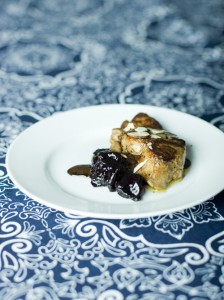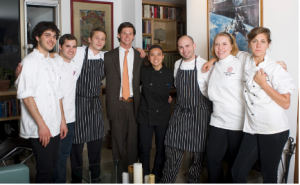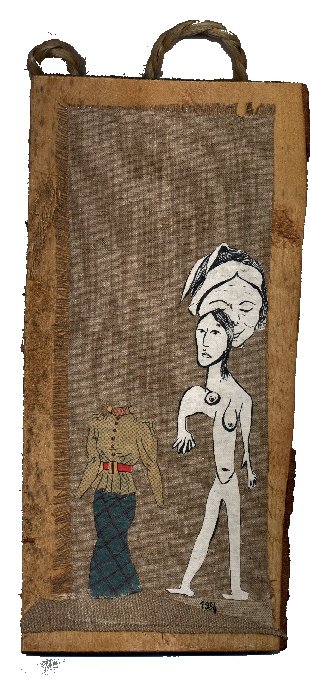
photo: Josh Stansfield
“She is making Cherry Coke Foie Gras!” says Ariane, nodding her head, pursing her lips, and cracking a demi-smile. She looks at my face and quickly adds: “she always wanted to do it“. Ariane Daguin, the Foie Gras goddess and childhood friend, is talking about her daughter Alix. Rose, Ariane’s best friend, and I have just been picked up at the corner of Madison ave. & 52nd street, and the three of us are now en route to Ithaca (N.Y) for the last Underground dinner of the season organized by an independent group of talented and inventive students from the Cornell University School of Hotel Administration. Alix Daguin is a founding member and one of the main emulator of the smart and energetic Underground cohort.
So we are excited to attend the Underground #3 dinner installation and the last event of the season. The five hour drive passes very fast despite traffic, weather, anxiety to be late — and all that thanks to Rose & Jacques’ interaction. Jacques is Ariane’s French speaking GPS, who is much better at keeping us entertained than at giving accurate directions!
The premise for tonight’s dinner: six of the Cornell students work on six separate courses mentored by a master chef; each has to create one dish to be served to forty guests (2 servings of 20). The mentor chefs were: Daniel Boulud, Eric Ripert, Anthony Bourdain, Drew Nieporent, Rick Tramonto, and Francois Payard. The location is the beautiful private home of Ann Druyan and the late Carl Sagan on Cayuga Lake (all dinner proceeds are going to the Carl Sagan Foundation). Cocktails are served outside, overlooking the lake; there we meet Ann Druyan who graced the evening with her generous and caring hospitality —Ann is a writer, and also the founder and chair of the Carl Sagan Foundation. We are now called to dinner. We are taking our seats in the impressive below ground glass veranda. We look down at the kitchen, we look up at the trees, we are in a dreamscape like setting and the Nicolas Feuillate champagne helps!
The level of attention for details and care is very impressive. The chefs and waiters show total command throughout the soiree. The menu is creative, exciting, balanced and imprints my memory with beautiful flavors. I will not give a detailed review of every dish but I do need to return to the Cherry Coke Foie Gras. Yes! The idea is provocative, and I have to admit that for once the evil ingredient made itself discreet and (to me) it is it’s best usage ever! The Cherry Coke is used in the reduction, and acts as a gastrique (If i remember correctly I think that 2 cans are used for 40 servings), then the Cherry Coke demi-glace is spooned out under a perfectly pan seared slice of Foie Gras, accompanied by preserved black cherries, and garnished with a few slivered almond. The combination of the Foie’s silky texture, the fleshy tartness of the cherries and the light crunch of the slivered almond created a subtle balance of flavors and textures. Bravo! Alix, you sure are carrying on the family tradition with style and inventiveness. Bravo! to the entire Underground team, I hope that I will be asked back, I heard that not everybody makes the guest list. For more info read the review in the The Cornell Daily Sun of the Underground Dinner #1 and do not miss the video below. Meanwhile drool while reading the menu! & Thank you Ariane for taking me along.
Menu
Cherry Coke Foie Gras
Alix Daguin mentored By Rick Tramonto
Rabbit and Chanterelle Tamales with Mole Trio
Nicole Leong and Anna Bauer Mentored By Anthony Bourdain
Finger Lakes Schuyler Cheese filled Ravioli with Green Peppercorn
Kevin Relf Mentored By Daniel Boulud
Pan Seared Halibut with Shellfish Emulsion and Spring Vegetables
Max Kellman Mentored By Eric Ripert
Beef Tenderloin with Marrow Parmentier and Spring Garnish
Peter Roumanis Mentored by Drew Nieporent
Lemon Verbena Sorbet
Katherine Kiess
Chocolate Toffee Cake
Danielle Tsuzuki Mentored By Francois Payard









